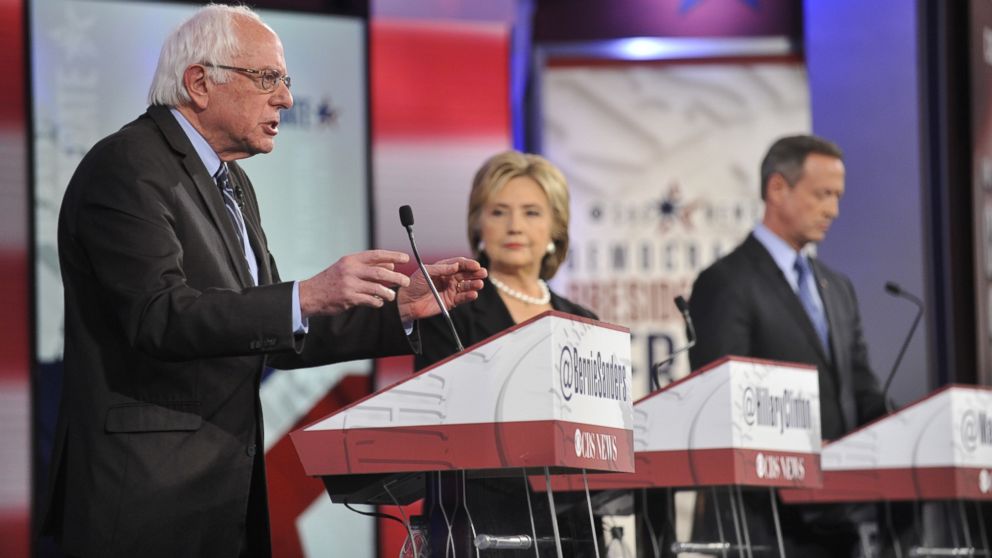Where the Democratic Presidential Candidates Stand in the Fight Against ISIS
Comes ahead of their next debate.

— -- The most recent Republican debate was dedicated largely to national security and foreign policy, so the potential GOP leaders addressed their varying paths to combating ISIS and the civil war in Syria.
The issue will undoubtedly come up again later tonight when the three Democratic presidential candidates face off at ABC News’ debate in New Hampshire.
Here is an overview of where each of the candidates stand on issues relating to the fight against ISIS and combating terrorism.
ISIS or Assad: Which Comes First?
Former Gov. Martin O’Malley and Sen. Bernie Sanders both believe that defeating ISIS should be the priority over ensuring that Syrian President Bashar al Assad is ousted, while former Secretary of State Hillary Clinton believes that both should be tackled at the same time.
Both Sanders and O’Malley have also said that they oppose the establishment of a no-fly zone over parts of Syria while Clinton thinks that it should be established in order to help fight both ISIS and Assad.
Use of U.S. Troops in Syria
All candidates are against putting US troops on the ground in Iraq and Syria, saying it’s what ISIS wants the U.S. to do. Instead, they believe the U.S. should support ground troops from the region to help carry out the missions and have called for an international coalition to help defeat ISIS where Arab nations will be expected to supply most of the military force on the ground.
Clinton has called for potentially increasing the number of special operations forces that the U.S. will send to the region, which could be more than the 50 that were announced.
Syrian Refugees
Refugees and immigration from the Middle East became publicly intertwined with the fight against ISIS after two of the attackers involved in the shootings in Paris were discovered to have entered Europe through Greece, and it was thought they may have either posed as or traveled with Syrian refugees. After that discovery, many Republican governors said that they would block Syrian refugees from being placed in their states and Congress voted to suspend the Syrian refugee program.
All three of the Democratic presidential candidates have called for Syrian refugees to be allowed into the United States, with Clinton and O’Malley specifically asking for 65,000 to be allowed while Sanders has not specified a number.
That said, they have all stipulated that screenings should be more strict and Clinton went on to say that social media postings should be subject to the visa screeners and anyone who, in the past five years, has traveled to a country facing terrorism issues should not be allowed a visa waver.
Encryption
One area where Clinton and Sanders have split is on the issue of encryption. Clinton noted that such coding, used to hide the subject of certain messages, does “present a particularly tough problem” for the federal government but they should be able to strike the right balance. Sanders, however, is wary about government overreach, tweeting: “I believe strongly we can protect our people without undermining our constitutional rights. I worry we’re moving to an Orwellian society. O’Malley has not addressed encryption at length.
When it comes to the role that social media play in ISIS’ recruitment efforts, Clinton has called on Silicon Valley – specifically naming YouTube, Facebook and Twitter – to work with the government to monitor potential terrorists. Sanders and O’Malley have also noted that U.S. officials must be aware of the role social media plays in the terror group’s recruitment.
ABC News' MaryAlice Parks contributed to this report.




